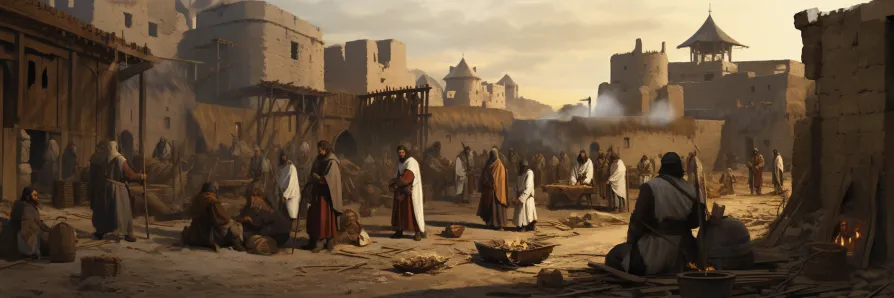Muroma Culture

Commands
The following command will set your culture to 'Muroma.'
The following command will change the culture of the specified county to 'Muroma.'
Information
| Name | Muroma |
| Culture ID | muroma |
| Heritage | Volga-Finnic |
| Ethos | Stoic |
| Language | Volga-Finnic |
| Architecture | Continental European |
| Fashion | Northern European |
| Coat of Arms | Eurasian Steppe |
| Military Equipment | Northern European |
Overview
The Muroma, also known as the Merians, are an ancient Finno-Ugric tribe that inhabited the central part of Russia, specifically located in areas around the Volga River and its tributaries such as the Oka and Moskva during the first millennium AD. The culture of Muroma is remarkable and considerably influential, impacting the history of the Russian civilization significantly.
The Muroma people were known for their agriculture and fishing skills owing to their geographical location. Their sustenance was based on cultivated crops, wild plants, and the fisheries abundant in the rivers. The forests surrounding the regions they occupied provided them with a rich source of game, further diversifying their diet.
Their society was divided into clans, each headed by an elder. This social order was heavily influenced by the patriarchal system and ancestral worship was a significant aspect of their religious practices. The Muromans also had profound spiritual reverence for nature and its elements, celebrating various seasonal and life cycle rituals.
The Muroma culture is also notable in the domain of arts and crafts, especially in pottery, ornamentation, and weavings, reflecting their detailed knowledge of nature and spiritual beliefs. Today, remnants of Muroma culture, though mainly assimilated into Russian and Finnish cultures, can still be traced through folklore, archaeological sources, and regional names.
Stoic Ethos

Stoic Ethos
This culture believes in standing strong like a mountain, taking any and all hardships that life may throw at them and enduring them all with grim determination and an indomitable spirit.
- +5 Defender Advantage
- -15% Stress Gain
- -15% Friendly Fatal Casualties
- +0.25 Disease Resistance Health Boost
Each culture will have an ethos, which represents the core values, principles and attitude towards life that the culture has. It also determines which court types are available for kingdoms and empires.
Muroma Traditions
- Frequent Festivities
- Storytellers
- Culture Blending with Royal Court
Each culture will have several traditions, which represent the main customs of a culture and can grant various effects. A culture can have up to five traditions in the tribal era, with every additional era reached granting an additional slot for Traditions.
Muroma Architecture
Continental European
